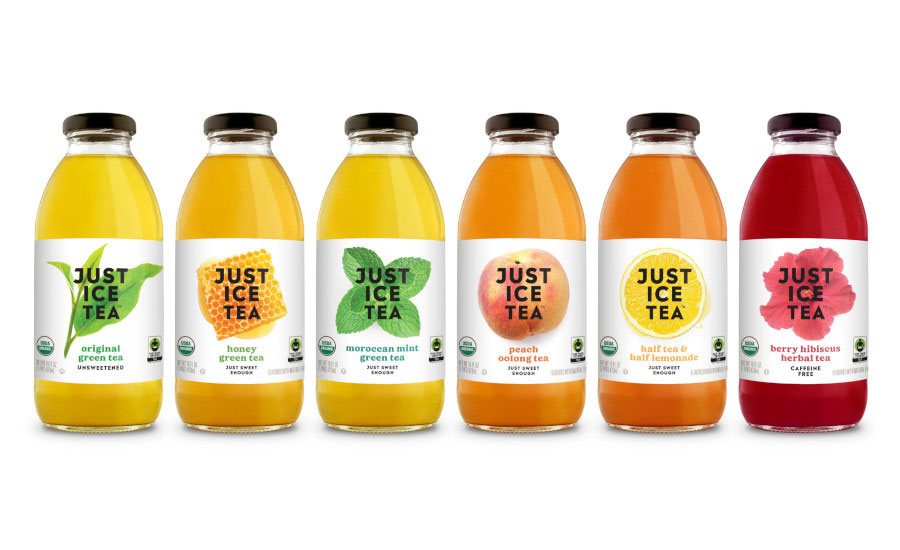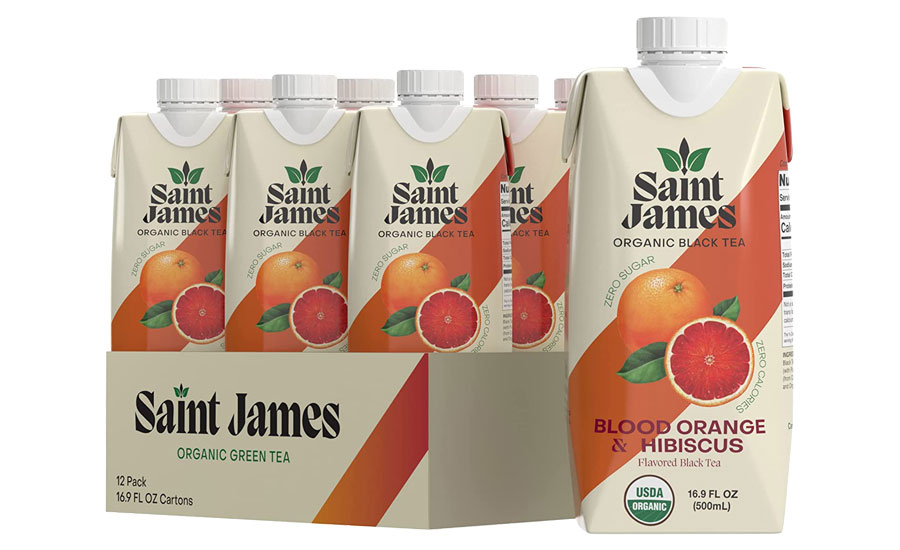2023 State of the Industry | Consumers turn to tea for convenience, health benefits
Ready-to-drink teas look to rebound following softer performance

Image courtesy of Bigelow Tea
As consumers have become more health conscious, a shift toward healthier alternatives has sparked a growing interest in the various combinations of teas, leaves and flavors, helping to spur growth within the tea and RTD tea categories.
Alexia Moreno, industry research analyst at IBISWorld, New York, explained in Beverage Industry’s June issue, that a growing number of individuals prefer their daily caffeine intake to be from tea rather than coffee, a trend that is reaching younger consumers who have traditionally favored coffee.
Because different tea leaves have different benefits, Moreno noted that consumers easily can find what works best for them. She also pointed out that tea consumption is supported because of its short- and long-term health benefits and caffeine content, as well as the way consumers associate tea into their routine.
“There have been multiple studies exploring the health benefits of teas, which range from acting as a diuretic to supporting cardiovascular health,” she said in Beverage Industry’s June issue. “Consumers looking to target specific health issues are inclined to explore the effects different leaves and herbs have on their bodies. Beverage manufacturers can benefit from this trend by developing new tea beverages that appeal to health-conscious consumers and to those looking for flavorful alternatives to other soft drinks.”
|
|
DOLLAR SALES | % CHANGE vs PRIOR YEAR | MARKET SHARE | % CHANGE vs PRIOR YEAR | |
| 1 | Pure Leaf | $985,676,713 | 4.7 | 21.7 | 9.4 |
| 2 | AriZona | $955,843,381 | 10.5 | 21 | 0.7 |
| 3 | Lipton | $561,156,532 | 0.8 | 12.3 | -0.7/td> |
| 4 | Gold Peak | $558,423,235 | 17.5 | 12.3 | 1.1 |
| 5 | Brisk | $447,284,610 | 9.2 | 9.8 | 0.2 |
|
|
Category Total* | $4,552,604,205 | 6.8 | 100 | --- |
*Includes brands not listed
Source: Circana, Chicago. Total U.S. supermarkets, drug stores, gas and convenience stores, mass merchandisers, military commissaries, and select club and dollar retail chains for the 52 weeks ending May 21.
Adriana Chychula, food, drink and nutrition analyst at Mintel, Chicago, also noted in Beverage Industry’s June issue that many consumers are turning to tea because of its health benefits.
“Tea has always been a powerful functional space, with many cultures throughout history and through today using teas as remedies for their medicinal properties,” she explained. “This contributes to a health halo that other beverages can leverage within their products — for example, using caffeine sourced from green tea and other tea extracts and elevating a product’s ‘clean’ image.”
|
|
DOLLAR SALES | % CHANGE vs PRIOR YEAR | MARKET SHARE | % CHANGE vs PRIOR YEAR | |
| 1 | Bigelow | $243,386,701 | 4.4 | 17.6 | 0.5 |
| 2 | Lipton Tea | $197,407,795 | 0.5 | 14.3 | -0.1 |
| 3 | Celestial Tea | $162,277,364 | 0.5 | 11.8 | -0.1 |
| 4 | Twinings Tea | $122,537,273 | 4.7 | 8.9 | 0.3 |
| 5 | Traditional | $103,517,659 | 3.1 | 7.5 | 0.1 |
|
|
Category Total* | $1,379,414,738 | 1.4 | 100 | --- |
*Includes brands not listed
Source: Circana, Chicago. Total U.S. supermarkets, drug stores, gas and convenience stores, mass merchandisers, military commissaries, and select club and dollar retail chains for the 52 weeks ending May 21.
According to data from Chicago-based Circana, the canned and bottled tea market increased by 6.8% in the 52 weeks ending May 21. The overall market reached sales of $4.5 billion, with the Top 5 brands being Pure Leaf, AriZona, Lipton, Gold Peak and Brisk, respectively.
Of the Top 5 brands, Gold Peak saw the greatest increase with sales of $558 million, up 17.5%, for the 52 weeks ending May 21. Pure Leaf’s sales reached $985 million, up 4.7% for the same time period, Circana data shows.

Gary Hemphill, managing director of research at New York-based Beverage Marketing Corporation (BMC), noted in Beverage Industry’s June issue, that although the tea category has “experienced soft performance” in recent years, it is “well positioned in today’s beverage landscape” thanks to its health and wellness positioning.
“Ready-to-drink tea and tea bags have dominated the tea category,” Hemphill said. “Over the years, ready-to-drink teas have gained share over other formats thanks to their convenience. In more recent years, ready-to-drink has also seen soft performance. Tea pods for single-cup brewers have never taken off like they have in the coffee category.”
|
|
DOLLAR SALES | % CHANGE vs PRIOR YEAR | MARKET SHARE | % CHANGE vs PRIOR YEAR | |
| 1 | Milos | $489,703,778 | 31.9 | 31.2 | 4.9 |
| 2 | Private Label | $290,957,689 | 9.9 | 18.5 | -0.2 |
| 3 | Gold Peak | $230,888,876 | 1.3 | 14.7 | -1.4 |
| 4 | Turkey Hill | $180,038,179 | 5.4 | 11.5 | -0.6 |
| 5 | Red Diamond | $132,245,564 | -0.9 | 8.4 | -1 |
|
|
Category Total* | $1,571,313,687 | 11.2 | 100 | --- |
*Includes brands not listed
Source: Circana, Chicago. Total U.S. supermarkets, drug stores, gas and convenience stores, mass merchandisers, military commissaries, and select club and dollar retail chains for the 52 weeks ending May 21.
Circana’s data for tea bags and loose-leaf tea show that the category reached $1.3 billion in sales, up 1.4% for the 52 weeks ending May 21. The Top 5 brands for the bags and loose-leaf tea category are Bigelow, Lipton, Celestial, Twinings and Traditional.
As for refrigerated tea, the segment saw a sales jump of 11.2%, with sales reaching $1.5 billion for the 52 weeks ending May 21. The Top 5 brands within the category were Milos, private label, Gold Peak, Turkey Hill and Red Diamond. Within the Top 5, Milos had the highest jump in sales at 31.9% and $489 million in sales, Circana data shows.

In Beverage Industry’s June issue, Mintel’s Chychula noted that, because tea is highly connected with routine, the main varietal options — green tea, herbal teas and black teas — “are widely available and approachable” because of their familiarity, which allows them to remain relevant, even as new options arise.
Looking for a reprint of this article?
From high-res PDFs to custom plaques, order your copy today!









